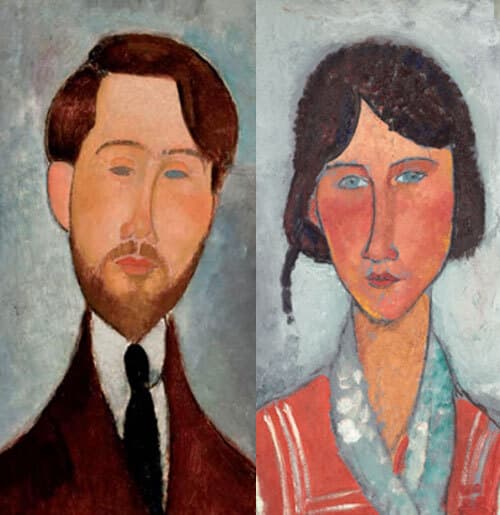Daniel Moody,
The Flesh Made Word: A New Reason to Be Against Abortion
(CreateSpace Independent Publishing Platform, 2016).
Amidst the tumult surrounding the so-called “bathroom wars,” some critics have taken conservatives to task for blowing the issue out of proportion. Doesn’t the controversy really come down to “whether a boy gets to use the girls’ loo”? And, if so, is all the fuss really worth it? Likewise, why should the Right get so upset about expanding the legal definition of marriage? This, like gender identity, can be treated as a technical legal matter. A circumscribed change in the law, so the argument goes, can be tolerated in the interest of freedom.
The beauty of Daniel Moody’s The Flesh Made Word is that he deftly gives the lie to this oft-repeated call for conservatism to sacrifice its ideals for the sake of democratic freedom. As he effectively proves, what might immediately seem to be a string of mere legal technicalities to accommodate the freedom of a small population (technically we can now choose our gender identity, technically marriage is no longer between a man and a woman, etc.) are not really technicalities at all but have implications for law itself. What is at stake for Moody is not first and foremost traditional “family values,” but something far more elemental: the relationship between reality, language, and law that together form the foundation of all human society.
Though it may at first seem a bit tedious, Moody begins by raising a simple question: What is language? He makes the basic but necessary point that language is preceded by and always draws its existence from a natural reality. Whether we call a car a “car” or “water” is ultimately, Moody argues, entirely arbitrary. However, what would be the social implications of intentionally depriving something as constitutive to human life as water of any name at all? Moody asks, “Why would we ever take a natural reality and shroud it in silence?”
It is not difficult to see where Moody is going with this logic as the theoretically-heavy first part of The Flesh Made Word gives way to its more concrete arguments that deal directly with the issues of abortion, gay marriage, and transgenderism. He clearly illustrates that what is happening with these issues most foundationally is the ideologically-motivated manipulation of language that becomes instantiated in law.
Law, Moody explains, is “like a mirror that reflects reality and society” made up of nothing but language. Thus, when the law severs the tie between natural reality and language, such as with abortion legislation that separates the word “person” from the body, the implications of this are not limited to the legal realm but are, as Moody will argue, far more intimate.
Now we approach the central claim of Moody’s argument. What is really at stake if law mandates the separation of language from reality? At the end of the day, is it not the case that a person is a person, a man is a man, a woman a woman, etc., no matter what the law says? While the law does indeed lack the power to change reality, it nevertheless has the power to undermine our capacity to articulate it. It can shroud natural realities in silence. “Making legally possible the physically impossible it makes legally impossible the physically possible.”
Moreover, Moody continues, since governing ought to reflect and nourish the truth of things, any time the law refuses to do so, as in the current separation of personhood from the body, we are, in fact, “no longer being governed” at all. And yet with the law’s continued appearance of governing, we are both deprived of the adequate language to understand who we are, and we believe lies about ourselves. This, in essence, is the “flesh made word,” where language no longer mirrors reality but uses its signifying power to actually oppose it, systematizing and formalizing this opposition in law and, in Moody’s words, thereby “trapping us in language.”
There is no question that Moody puts his finger on the problem with great precision. His method manages to avoid the common superficiality of these often ideologically freighted discussions and convey his point with remarkable objectivity.
One possible sticking point with Moody’s argument is his ascription of the unraveling of law (the point where he would make the claim that we are “no longer being governed”) to abortion legislation. While I do not doubt the monumental impact of this legal separation of personhood from man’s bodily existence, I wonder if the argument might benefit from recognizing (taking a cue from thinkers like David Crawford) the roots of this “disembodied” conception of man in the foundations of the Liberal tradition that progressively codified this conception even prior to the legalization of abortion. One could argue, for instance, that this was in some way already the case with earlier legislation regarding contraception.
Finally, the last chapter of Flesh Made Word is entitled “The Denial of Man.” This apparently gloomy chapter is actually hopeful. In the midst of cultural chaos, Moody invites us to “wrench our gaze away” from the distorted image that the law reflects and return to the Divine as the only adequate way of interpreting our true identity. More specifically, he refers to the Divinity that has revealed all of natural reality as imbued with meaning and that alone can really free us from being “trapped in language”: the Word made flesh.
Morgan Holliger is a Ph. D. candidate at the Pontifical John Paul II Institute for Studies on Marriage and Family in Washington, D.C.
Keep reading! Click here to read our next article, Why We Need Jordan Peterson, and Why He Needs Us.
Morgan Holliger is a Ph. D. candidate at the Pontifical John Paul II Institute for Studies on Marriage and Family in Washington, D.C.



